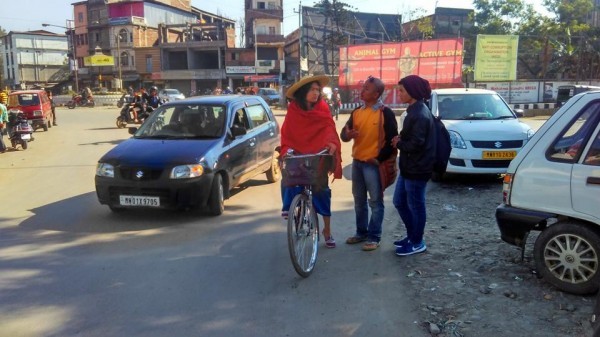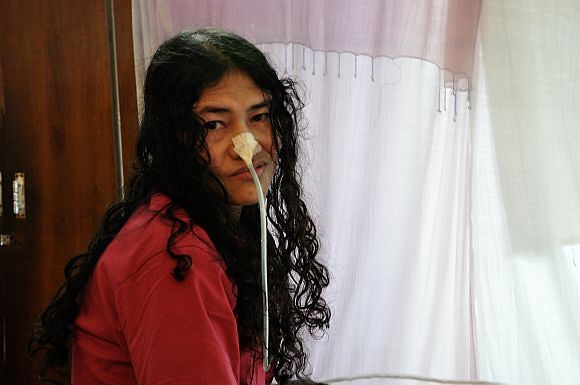That's what Desmond Coutinho, fiancé of hunger striker Irom Sharmila, wrote in a letter I received a day after seeing news stories about his being assaulted and imprisoned in Manipur, where he'd gone to be near Sharmila and advocate for her.
I'm worried about him. He's a complicated person, and the situation with Sharmila is complicated.
( very brief background on Irom Sharmila ) Reality, though, proved different. Desmond turned out to be very volatile, given to abusive criticism of people he opposed. It was easy to see how and why people dismissed him as a crank--but that's not an accurate assessment of him either.
He's been writing to Sharmila since 2011, and she's been writing back; he's visited her; they've talked. They have a real friendship--this is clear not only from what he says, but from what she says. It's not just him claiming to be her fiancé; she declares it too. Is she being duped or taken advantage of? To suggest that is to say that she's not capable of good judgment, herself; that somehow other people know better than she does--but she's the one who's had the correspondence. Her feelings are based on her experience.
And there's more to Desmond than his anger; he's also thoughtful, introspective, funny. He and Sharmila talk about books, philosophy, religion, politics. Furthermore, she knows about his moods; they've talked about those, too.
Many of the people surrounding Sharmila see Desmond as a threat to her protest, or as someone who's just seeking glory for himself. As for the former, they don't need to worry: Sharmila is 100 percent committed to her cause. But she'd like to be free to love, like other people love, and she is frustrated by people trying to prevent or deny her affection for Desmond. As for the latter, all I can say is that in every communication I've had with Desmond, he's been focused on her, and her welfare, and her cause, and, yes, their future together--and not at all on himself.
If Sharmila should give up fasting--not at all likely, but if--that wouldn't need to be the end of the campaign against AFSPA. Even though she's a powerful symbol of the cause, the cause is still bigger than she is. And contrariwise, if she were to die for the cause, that wouldn't necessarily help it. It would, however, be the loss of a unique soul, and a tragedy.
Sharmila deserves better treatment, both from the government and from some of her supporters. The government has kept her isolated and limited her contact with people. There's no reason for that; that's just a form of abuse. And those of her supporters who oppose her friendship with Desmond should ease off. If the fight against apartheid in South Africa could survive Nelson Mandela's divorces and remarriages, then surely the fight against AFSPA can survive Irom Sharmila's commitment to Desmond Coutinho.
I hope once Desmond has finished his 15 days in jail, he's able to visit with Sharmila some more. I hope both the local activists and the local government will leave him alone. I hope the fight against AFSPA can continue, and that Sharmila's life can open up in positive ways.



